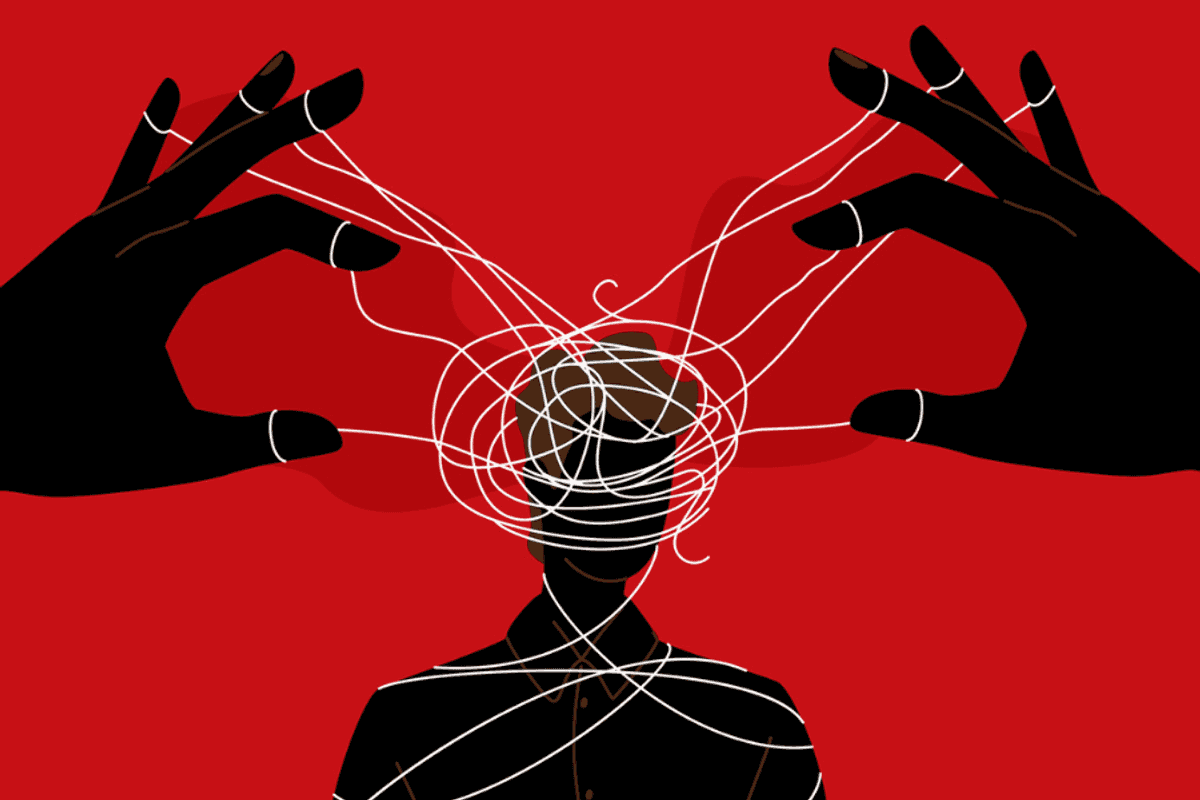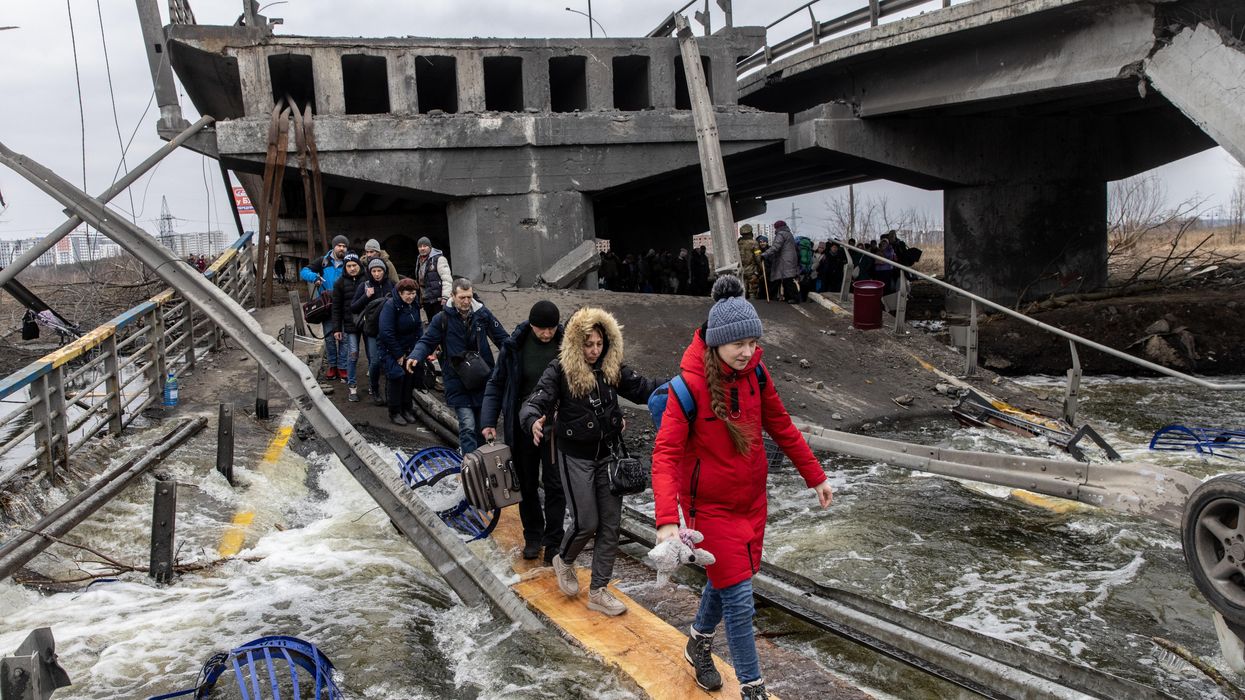Haerer, an Army veteran, is a state leader in Maryland for Veterans for Political Innovation.
I left active combat behind on May 11, 2006, after a roadside bomb ripped through the bottom of our Humvee. It killed my friend in front of me and sent shrapnel through my bones, while the blast wave smashed our brains. It threw my machine gunner out the roof and blew the steel blast door a dozen yards away.
That day and that war never leave my memory, even as life has gone on. But 16 years after that sunrise explosion outside Baghdad, this week’s unprovoked invasion of Ukraine has me again remembering — feeling, actually — just how ugly the world can be.
Ukrainian civilians are now dealing with what I and so many other veterans knew fighting in our own wars: that explosive physical and mental pain could come any minute. Living in that state of hyper-vigilance will result in effects lasting long into the future, even after the violence ends.
But unlike us, Ukrainian civilians didn’t sign up to join the military; worse, their country didn’t do anything to deserve this war. We hear them on TV grappling with the fact that 11 days ago they were walking their child to pre-school and making plans for the weekend, believing Vladimir Putin’s buildup was bluster to improve Russia’s positioning in diplomatic negotiations. For the last week, they’ve suddenly been forced to just try to survive, becoming potential targets of a military and man for whom no war crime is off-limits.
What an awful, awful hell to live in.
I’m proud of the role the United States is playing in leading the effort to unite much of the world against Putin, and proud of the efforts we are taking to supply and support the Ukrainian defense forces. I know we can do more, and hope we do everything in our national power while managing the risks of further escalation that, unfortunately, could be even worse. But mostly, like all of us, I’m just devastated that we can’t simply make the war stop for the Ukrainians, roll back the clock and restore their lives to what they were a few weeks ago.
So although it appears we won’t overtly send our forces into Ukraine, and our diplomacy failed to deter the invasion, the outcome might have been much worse had it not been for the United State working to organize others on the side of good and punish Putin. It is critical now, more than ever, for America to serve as a beacon of democracy for the rest of the world, and support those Ukrainians fighting so bravely for their own. But however this war turns out, history tells us that future leaders will inevitably try to attack peaceful nations again. Ensuring we have the ability in the future to be as influential as we are today is going to require improving our democracy at home.
America is still the strongest country in the world, with the largest economy and currently the most powerful military on Earth. Although international competitors are incrementally shrinking our advantages on both of those, our ability to lead on behalf of good could be at as much risk in the future from within.
Yet, America is polarized, and it is crippling our ability to be strategic about maintaining our leadership. And, as Ezra Klein’s super book “Why We’re Polarized” explains, it is getting worse. Absent temporarily unifying, internationally driven crises like 9/11 or Putin’s invasion of Ukraine, there isn’t much that brings Americans together anymore. Henry Olsen writes about a University of Virginia poll last October: “The most frightening findings show that supermajorities of voters in each camp believe the other side is bent on destroying the countr”, and “that elected officials of the other party 'present a clear and present danger to American democracy.’”
That’s a terrifying warning sign for our country — and the world. Geopolitics doesn’t lend itself to black and white answers, and neither do most domestic policy challenges. Evolving transnational risks from nuclear proliferation, terrorism, technology, environmental change and international resource competition, among others, make solving all of these more complex. The best solutions for America’s long=term stability and strength will require compromises and contributions from all sides, because the challenges for the coming decades are arguably going to be as big as we've ever faced.
But our current political system penalizes politicians who vote their conscience and want to work together for the common good. That’s not some abstract goal — it's what we need to ensure America remains the strongest country in the world. Our current system of primary elections limits participation to only the most partisan voters, and these voters aren’t interested in what is required to actually govern productively. That means our elected leaders can’t do their jobs effectively, because unless they pander to the most partisan voters, they risk being challenged in the next primary election.
It is a no-win situation for America if working with the other side means you’re more likely to be challenged in a primary. The incentive for governing for the good of America over the good of the party is completely nonexistent.
We have to fix this, or risk major losses to our international strength and influence. Fortunately, simple and powerful innovations can solve this “primary problem.” Veterans for Political Innovation is a nonpartisan nonprofit in which veterans of all parties — Democrats, Republicans and independents alike — use their platform to promote the ideas in Katherine Gehl and Michael Porter’s book, “The Politics Industry”: Have each state adopt open, single-ballot primary elections, where all can vote on all candidates, regardless of party affiliation. Then, the top four or five candidates advance to the general election in November, where ranked-choice voting is used to select a winner.
These changes are nonpartisan, and doable. Adopting these will make our politicians accountable to all their constituents, and not just the partisan few. It will help make politics less toxic and our democracy more functional. Open primaries allow independents a chance to compete, widening the range of policy approaches to solving America’s challenges. And in a ranked-choice system, the candidate with the best ideas and the broadest appeal is the most likely to win. This “final five” style has already been adopted in Alaska, and is being discussed in Wisconsin and several other states. We need a robust debate on them in the rest of the states, too.
Ukrainians will be in conflict for a long time. The shock of Putin’s invasion in an attempt to topple a free, peaceful nation will pass for much of the world, but the pain for the Ukrainians will remain forever. And after this moment of relative American policy unity, the United States will again at some point revert to a political normal. History shows us that free and peaceful nations can change from within — for better or worse. This week serves well to remember that none of us knows what the future might hold. We need to change course to save our democracy.
We have the tools on hand to unleash our ability to work together at home. If we use them, we can secure our democracy’s strength for the future, and retain the international strength to be able to lessen the opportunities for this week’s hell on earth in Ukraine to happen again somewhere else, to someone else. There’s no better way to honor the sacrifices that Ukrainians are making right now than to do just that.



















